The Capillary Wave: Word Index

- A New Name
- A New Identity
- A New Family
A New Name
A legal name is very specific. It is not a name in the ordinary sense, it is a name with a very specific status and purpose which will be explored here. The fact that it expressly declares itself to be legal puts it firmly in only one of the jurisdictions that are available to mankind for law and governance.
In law, and on Earth, there are two main lawmakers which are:
- government and
- God.
Governments are completely secular and therefore rule their citizens using civil law, which is another word for Roman Law, which is the legal system which governs the citizens of a country.
God’s law is written in Scripture and on the conscience. Importantly man’s government (the powers that be) sits under God’s law, is in opposition to God (you can not have two law makers, rulers, masters: Matthew 6:24: Exodus 20:3) and therefore civil law is a derivative of God’s law:
- Romans 13:1, KJV 1611– Let every soul be subject unto the higher powers. For there is no power but of God: the powers that be are ordained of God.
The “legal name” then can only be in the legal jurisdiction of man’s law and governance under a government, because as you will see it is strictly forbidden under the lawful jurisdiction of God’s law and His governance, according to Scripture.
Whether you have a “legal name” or not, at law, will define whom your lawmaker is, your master, it will define which side of the legal vs. lawful jurisdictional line you will fall in to.
This is because man’s government only has jurisdiction over what it creates and names, just as The Lord God does. What you name you control, and that is very important at law. Who named you?
- God only names two things in The Bible: man and land. Everything else is named by man.
Logically then, who names you, and what your name is, is very very important.
- Source of photograph: Black’s Law Fourth Edition (available free at Capillary Wave Library)

The first thing to note from the above definition in the photograph is that a legal name is under common law, which logically means that common law is a legal doctrine, which is explained further in my article on common law.
Because common law is a legal doctrine under man, that means it is contrary to the lawful doctrine of The Bible under God, as will be explained via the word definitions, in detail below.
- Legal pertains to the secular civil law of man, and what is lawful pertains to Scripture under The LORD God.
Secondly it follows that a legal name is created by, and under the control, jurisdiction and issue of; the state. A legal name is therefore administered under The Houses Of Parliament. The legal name is a secular name, in that it belongs to the state.
A legal name is a confusion and an amalgamation of two separate and distinct names; one Christian name, and one surname as evidenced below.
Your first name — or “first names”, or “Christian name”, or “forenames”, or “given name”, or “proper name” (or sometimes just “name”) — consists of all of your names apart from your surname.
So, for example, if your full name were “John Fred SMITH” (your surname being “SMITH”), then your first name (in full) would be “John Fred”. Legally speaking, you don’t have a middle name, so you’d simply have a first name made up of two names (“John Fred”).
- There is no concept or definition of a “middle name” in English law. Your middle names (if you have any) are a part of your first name. (See: Evans v King (1745); Jones v Macquillin (1793); Williams v Bryant (1839).)
- Source of photograph: Black’s Law Dictionary First Edition; Christian name.
- The meaning of “Christian name”: Deed Poll Office.
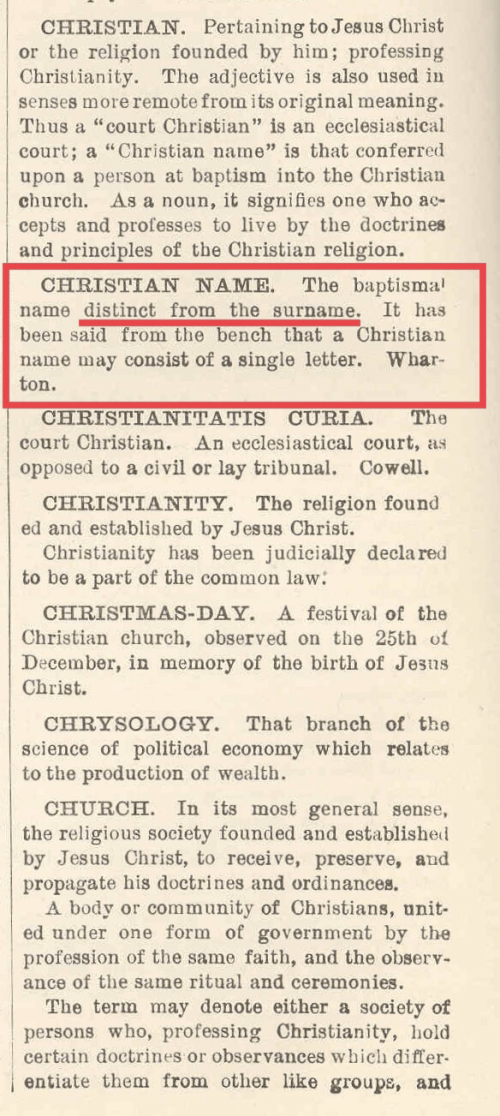
A surname is “over and above” a Christian name. See “sur” – over and above.
- Source of photograph: Black’s Law Dictionary First Edition; Surname.

A surname makes up the last part of a legal name under common law. A legal name is a name issued and created by the state, for the purpose of civil law. It is a secular name, “of” and “by” the state; belonging to the state for its commoner citizens.
- Word Index: Secular
A New Identity
A legal name is a new name, new creation. It is a state created and owned name made up of two separate parts. The state combined two separate and distinct names, and created one new legal name. Logically then, the state created legal name is not your name since it was created by the state, and belongs to, the state.
This is why on the hard copy of the certificate form which evidences the legal name, it carries this warning:
- “WARNING: A CERTIFICATE IS NOT EVIDENCE OF IDENTITY”
Source of photograph: Deed Poll Office.
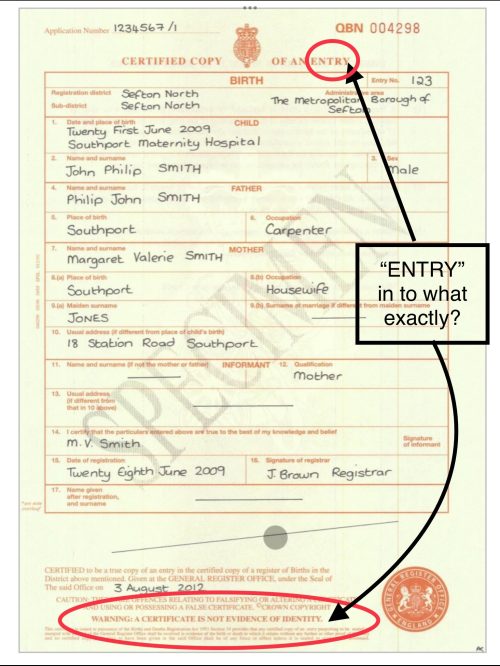
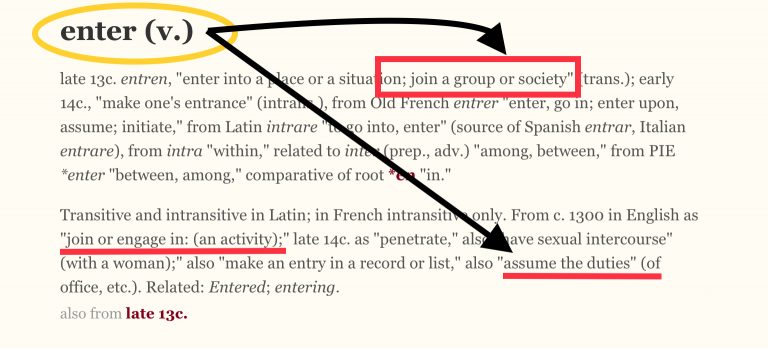
Because a legal name is not your name but a creation of the state, it allows you to “enter” in to that civil, legal society of a polity, should you adopt it, and use it “as” your own. Using the CERTIFIED COPY OF AN ENTRY to prove “your name” is acceptance of: the rank – commoner, title – Mr, Mrs, Miss, duties, and obligations associated with that legal name from the government/ society /family which created it. Now you might be beginning to realise why it would not be allowed scripturally speaking, and is against some of the ten comments.
A legal name is what is known in law as a legal fiction, meaning that it is a fiction of the law, arising from the law, ergo it does not exist in reality, only in your mind. No name exists in reality, in the natural realm, because a name is a creation of language, and language only exists in the mind. In law that is known as a legal fiction; in The Bible it is called a “graven image”. They are the same things, creations of mankind that are intangible.
As stated, The Bible has another term for legal fictions, it calls them graven images. The legal name is by definition, a graven image.
A graven image is something that is inscribed, carved and created (like language) but importantly it only exists in your mind. A graven image creates an impression in the mind.
Here are some maxims of law with regards to legal fictions or “graven images”.
- A fiction is a rule of law that assumes something which is or may be false as true.
- Where truth is, fiction of law does not exist.
- There is no fiction without law.
- Fictions arise from the law, and not law from fictions.
- Fiction is against the truth, but it is to have truth.
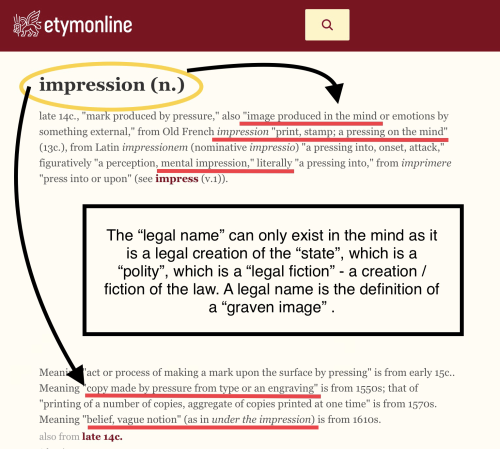
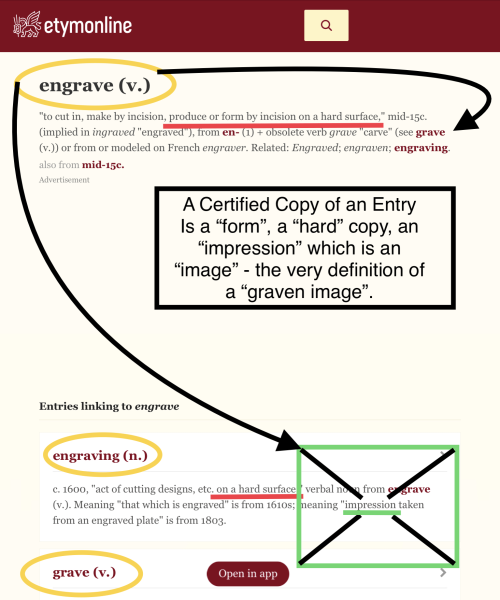
A New Family
The common law is so called because it governs the commoners, who are the third class state citizens; of a country. If you are a citizen of a country then you will be a “commoner” which is the lowest rank, and your title for that rank will be “Mr, Mrs, Ms”.
- Word Index: Country
- A citizen is a commoner which is a “person” – Word Index: Person.
Commoners are a member part of the body of the House of Commons.
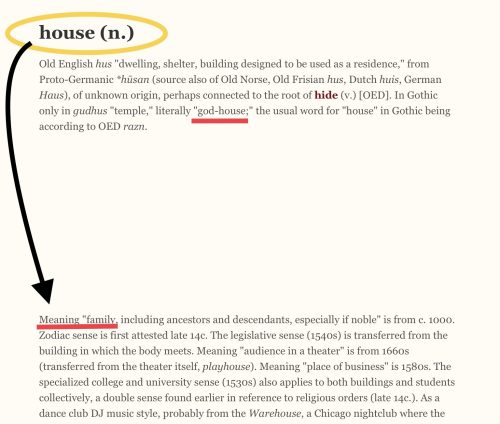
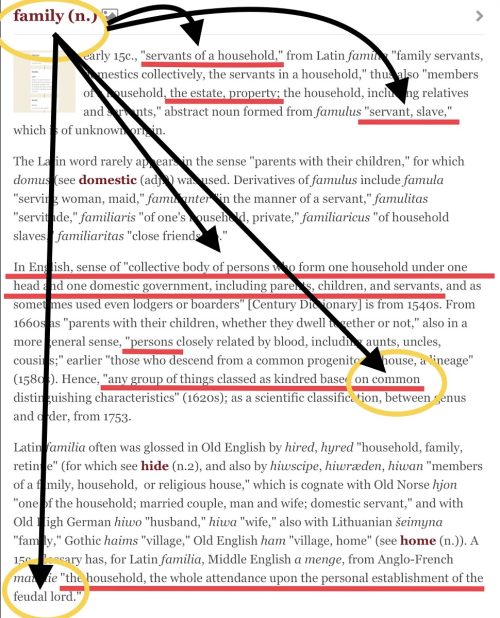
In layman’s terms; a legal name is a creation of the state and an invitation to enter a new House, should it be accepted. That is why the graven image – Legal fiction – CERTIFIED COPY OF AN ENTRY is a copy of an “ENTRY”.
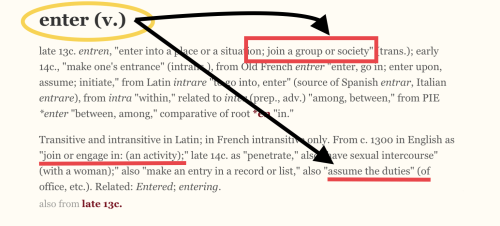
The scriptures constantly warn the reader about becoming worldly, transgressing the law, (passing from the lawful jurisdiction of God to the legal jurisdiction of man) staying out of bondage, not having other god’s, accepting graven images, (legal fictions) don’t serve other god’s, and how God loves those that keep his commandments.
- With regards to law and governance, whomever is the “Father”, makes the law, is the master.
In a country the Monarch is considered the “Father of the nation”. The American Republic has its “Founding Fathers”, and The Father of the Bible is the Father of The Lord’s Prayer; Our Father who art in heaven.
This is important because the state is the father, and the father names his [per] son, therefore whatever you name, you have control over. So the state makes the laws and has jurisdiction over its per-sons; its commoner citizens, as it owns them.
This is why it is warned against in The Bible, because to “accept a new name, is to accept a new identity, and a new family, and in terms of law and governance it is also to accept a new “Father”, a new lawmaker, and turn one’s back on The Father who art in heaven. This is what the word “attorn” means, to turn away from one Lord, to give allegiance to another lord; to become a liege man.
All of the above happens when you take a new name, and to take a new name is to accept a graven image, which is to break the first commandment: Exodus 20:3, KJV 1611 – Thou shalt have no other gods before me.
Small “g” gods in The Bible are earthly rulers, kings, judges; “god’s”. The Bible uses word styles to differentiate between different entities using the same words, as an example: LORD, Lord and lord, all point to different beings. “LORD” being El the Almighty, “Lord” being Christ Jesus, and “lord” being an earthly lord.
Exodus 20: 2-5, KJV 1611 is all about not accepting the government of man, under the control of man, and accepting man’s graven image of that state; the person of man, see Job 32:21, KJV 1611.
A graven image is a new face, a new persona, of a new family under a new father, and creator. Now you can hopefully see why it is against everything that God stands for, as stated in Scripture.
- Word Index: Person
- “God hath given you one face, and you make yourselves another” – William Shakespeare